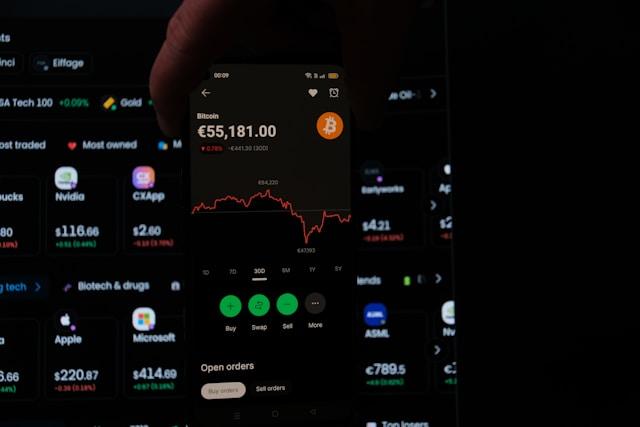
Understanding OTC Crypto Trading
What is crypto OTC trading? Over-the-counter (OTC) trading in cryptocurrency refers to direct peer-to-peer transactions that occur outside traditional exchange order books. This method has become increasingly popular among institutional investors and high-net-worth individuals who need to execute large trades without impacting market prices.
OTC crypto trading essentially functions as a private marketplace where buyers and sellers negotiate directly, similar to how traditional financial markets handle large block trades.
How OTC Crypto Trading Works
The Basic Process
- Initial Contact: Traders connect with an OTC desk or broker
- Price Negotiation: Both parties agree on a fixed price
- Settlement: Assets are transferred directly between wallets
- Completion: Transaction finalizes without appearing on public order books
Key Benefits of OTC Trading in Cryptocurrency
1. Reduced Market Impact
Large trades on regular exchanges can significantly move prices. OTC trading prevents this by keeping transactions private and off public order books.
2. Better Pricing for Large Volumes
According to industry data, traders executing orders above $100,000 often receive better rates through OTC desks compared to spot markets.
3. Enhanced Privacy
Transactions remain confidential between counterparties, protecting trading strategies from competitors.
4. Minimized Slippage
Fixed pricing eliminates the risk of slippage that commonly occurs with large market orders.
Popular OTC Crypto Trading Platforms: Features and User Reviews
Platform Features Comparison
When evaluating OTC crypto trading platforms, users typically consider several key features:
Personal Account Management
Many platforms offer dedicated account managers for personalized service. Users frequently mention this as a crucial factor in their platform selection, especially for complex trades requiring guidance.
Settlement Speed
Fast settlement times are essential in volatile crypto markets. Leading platforms typically complete transactions within 15-60 minutes, according to user reports.
Security and Compliance
Established OTC desks implement strict KYC/AML procedures. While some traders find this cumbersome, most acknowledge it's necessary for legitimate operations.
Minimum Trade Sizes
Most OTC desks require minimum trades between $10,000-$100,000, though this varies by platform and market conditions.
What Users Are Saying
Based on community feedback across various crypto forums and review sites:
Positive Experiences:
- "The ability to lock in prices saved me thousands during volatile periods"
- "Direct communication with traders beats automated systems for large trades"
- "Settlement was much faster than I expected - under 30 minutes"
Common Concerns:
- "High minimum trade requirements exclude smaller investors"
- "KYC process can be lengthy for first-time users"
- "Spread can be wider during low liquidity periods"
OTC vs. Spot Trading: When to Use Each
| Criteria | Spot Trading | OTC Crypto Trading |
|---|---|---|
| Order Size | Small to Medium | Large (often >$25,000) |
| Market Impact | High (for large trades) | Minimal |
| Price Execution | Variable/slippage | Pre-negotiated/fixed |
| Anonymity | Low | High |
| Settlement Speed | Fast (but depends on liquidity) | Fast (customized) |
| Ideal Use Case | Retail trading, altcoins | Institutional/whale trades |
Real-World Applications
Common OTC Trading Scenarios
- Institutional Purchases: Hedge funds acquiring large Bitcoin positions
- Mining Operations: Miners selling rewards without crashing local markets
- Cross-Border Transfers: Businesses converting large amounts for international payments
- Portfolio Rebalancing: Funds adjusting holdings without market disruption
Case Study: Stablecoin Arbitrage
Many traders use OTC desks for large stablecoin swaps. For example, converting $500,000 USDT to USDC through OTC can save 0.2-0.5% compared to exchange rates, translating to $1,000-$2,500 in savings.
Important Considerations and Risks
Counterparty Risk
Unlike exchange trading, OTC transactions involve direct counterparty risk. Always verify the reputation and regulatory compliance of your OTC provider.
Price Discovery
OTC prices may differ from spot markets. Compare multiple quotes before executing large trades.
Regulatory Compliance
Ensure your OTC provider follows local regulations. Non-compliant platforms pose significant legal risks.
Getting Started with OTC Crypto Trading
Prerequisites
- Typically $10,000+ in trading capital
- Completed KYC verification
- Understanding of market dynamics
- Clear trading objectives
Best Practices
- Start with smaller trades to understand the process
- Build relationships with multiple OTC desks
- Always verify counterparty credentials
- Keep detailed transaction records for tax purposes
Platform Spotlight: WhiteBIT's
Among various OTC platforms, WhiteBIT offers several features that users frequently highlight:
- Dedicated Support: Personal managers for qualified traders
- Competitive Rates: Locked-in pricing without hidden fees
- Quick Settlement: Most trades complete within minutes
- Regulatory Compliance: Full KYC/AML procedures
Disclaimer: This information is for educational purposes only. Always conduct your own research and due diligence before using any OTC trading platform. Past user experiences may not reflect future results.
Future of OTC Crypto Trading
Industry experts predict continued growth in crypto OTC markets as:
- Institutional adoption increases
- Regulatory frameworks mature
- Technology improves settlement efficiency
- Market liquidity deepens
Conclusion
OTC crypto trading serves a vital role in cryptocurrency markets, particularly for large-volume traders seeking efficiency and privacy. While not suitable for everyone, understanding how OTC markets work can help traders make informed decisions about their execution strategies.
Whether you're managing institutional funds or scaling personal investments, OTC trading offers unique advantages worth considering. The key is choosing reputable platforms, understanding the risks, and starting with appropriate trade sizes for your experience level.
Note: Cryptocurrency trading involves substantial risk. This article provides general information only and should not be considered financial advice. Always consult with qualified professionals before making investment decisions.


